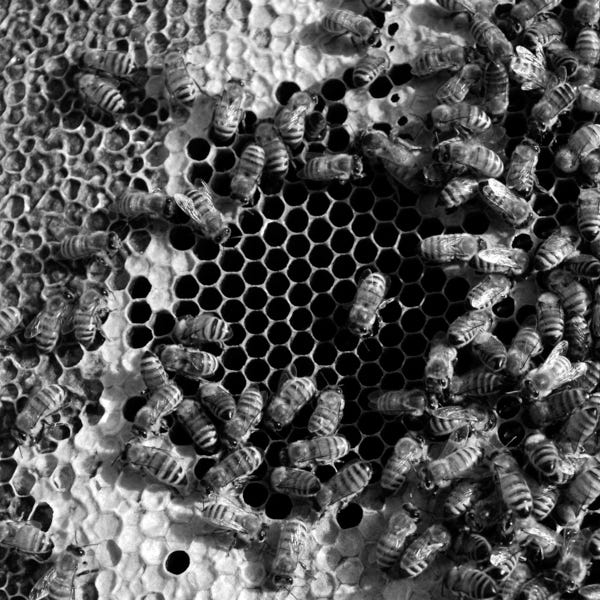#275: Some Thoughts On Mercy

This isn’t the first time that a disturbing, devastating event has immediately preceded an issue of The Highlighter. Yesterday’s storming of the Capitol was one just example of several in this newsletter’s six-year history. I remember the massacre at Pulse night club in Orlando, the 2016 Election, the mass shooting in Las Vegas, and of course, the murder of George Floyd. Every time, I search late into the night for an article that might offer perspective. They never seem to exist — that is to say, not until many weeks later, when we’ve had time to process what’s happened. In time, I’ll be sure to find them and share them with you. But this morning, as I think about what to write here, I’m reminded that we may feel a range of emotions about yesterday’s events. But one that no longer fits right, that doesn’t make sense, is “shocked.” What happened yesterday wasn’t unpredictable; it didn’t come out of nowhere. After all, as historian Heather Cox Richardson wrote, “Today the Confederate flag flew in the United States Capitol.”
Before launching into today’s issue, which features outstanding articles on the possibilities of mercy and reconciliation, the benefits of gift economies, the contributions of Indigenous scholars, and the ravages of COVID-19, I’d like to welcome all of you — and in particular, the bunch of new subscribers — to another year of The Highlighter. I look forward to connecting with you more deeply and building our reading community. More details to come soon!
+ I’m happy to announce that Article Club is back, and this month, we’ll be discussing “Motherland,” by Jiayang Fan. Voted best article of 2020 by Longform, the piece explores the author’s complicated relationship with her mother as she battles ALS. Already, many of you have signed up, and Ms. Fan has generously agreed to an interview (authors always participate!), so if you’re intrigued and want to join, please do! Here’s more information.
+ In case you missed it: Here are your five favorite articles of 2020, the ones you read the most. Go ahead: Organize a reading party with your friends and enjoy them all. (Then tell me about it.)

Ross Gay: “When the police suspect a Black man or boy of having a gun, he becomes murderable: Murderable despite having earned advanced degrees or bought a cute house or written a couple of books of poetry. Murderable whether he’s an unarmed adult or a child riding a bike in the opposite direction. Murderable in the doorways of our houses. Murderable as we come home from the store. Murderable as we lie face down on the ground in a subway station. Murderable the day before our weddings. Murderable, probably, in our gardens.
“We all exist, mostly unwittingly, in a world of illusions with all-too-real consequences. What if we acknowledged those fears, regardless of how awful or shameful they are? What if we acknowledged this country’s terrible and ongoing history of imagining its own citizens — Indigenous, Black, Japanese American, Arab American, Latino — as monsters? What if we honestly assessed what we have come to believe about ourselves and each other, and how those beliefs shape our lives? And what if we did it with generosity and forgiveness? What if we did it with mercy?” (22 min)
+ Mr. Gay wrote this article in July 2013, the month Black Lives Matter was founded. Some parts still feel spot-on relevant. Other parts, though — the more hopeful parts — may feel out of step, falsely nostalgic and optimistic.
Gifts And Gratitude Create Abundance
The problem with capitalism, according to Robin Wall Kimmerer, is that its central premise is scarcity, when the land offers abundance. One evening in the wooded hills, Prof. Kimmerer, a member of Citizen Potawatomi Nation, reflects on what Saskatoon serviceberries can teach us about the power of gratitude and reciprocity. If we replace zero-sum economies with gift economies, where resources are shared rather than hoarded, we’ll realize that there’s enough bounty for all of us. (26 min)
+ Depending on your level of jaded skepticism, you might find the beginning of this piece a bit woo-woo. But give it a chance: It’ll grow on you.

Yoshi, who belongs to VIP Summer, adorns the cover of this year’s prized Pets of The Highlighter calendar. Get yours today, before it’s too late! highlighter.cc/store
According to the “virgin-soil epidemic” thesis first presented by Alfred Crosby, European diseases accelerated the genocide of Native Americans. Indigenous scholars now dispute this argument, arguing that we should place blame not on microbes but rather on oppressive people and policies. In this well-written piece, Nick Estes, a citizen of the Lower Brule Sioux Tribe, cites our government’s current response to the coronavirus as this century’s version of Columbus’s smallpox. Prof. Estes writes, “The United States only knows violence. It convinces through force. It is numb to suffering and indifferent to the welfare of people.” (14 min)
Last year, I steered clear of featuring too many COVID-related articles, mostly because we got inundated with them every day for months on end. But there’s no way I can’t recommend this epic, riveting piece by Lawrence Wright, whose comprehensive account of the pandemic puts into perspective how tragic and surreal the past 10 months have been for all of us. (123 min)
+ No, this isn’t a short article by any means. But I guarantee you, it’s outstanding. If you make your way through, let me know: I’d love to talk about it.
Thank you for reading this week’s issue of The Highlighter. I hope you enjoyed it. Let me know what you thought about today’s issue by hitting reply or by clicking on the thumbs below.
Also, let’s welcome our reading community’s 12 new subscribers, including Matt, Jackie, Katarina, Nina, Cassandra, Angela, Leah, Stephanie, Kayla, Joe, and Gretchen. I hope that you find the newsletter a solid addition to your email inbox.
If you like The Highlighter, please help it grow. I appreciate your support. Here are a few ways you can help:
Think of one person who would appreciate the newsletter. Then forward today’s issue and encourage them to subscribe
Treat me to a cup of coffee (or 5 — thanks, Leslie!)
Go all in and become a VIP of the newsletter, like Leslie
On the other hand, if you’re Marie Kondo-ing your inbox and this newsletter no longer brings you joy, please unsubscribe. See you next Thursday at 9:10 am PT!
Don’t miss out on the other issues by Mark Isero
Become a member for $3 per month
You can manage your subscription here.
In order to unsubscribe, click here.
If you were forwarded this newsletter and you like it, you can subscribe here.
Created with Revue by Twitter.




